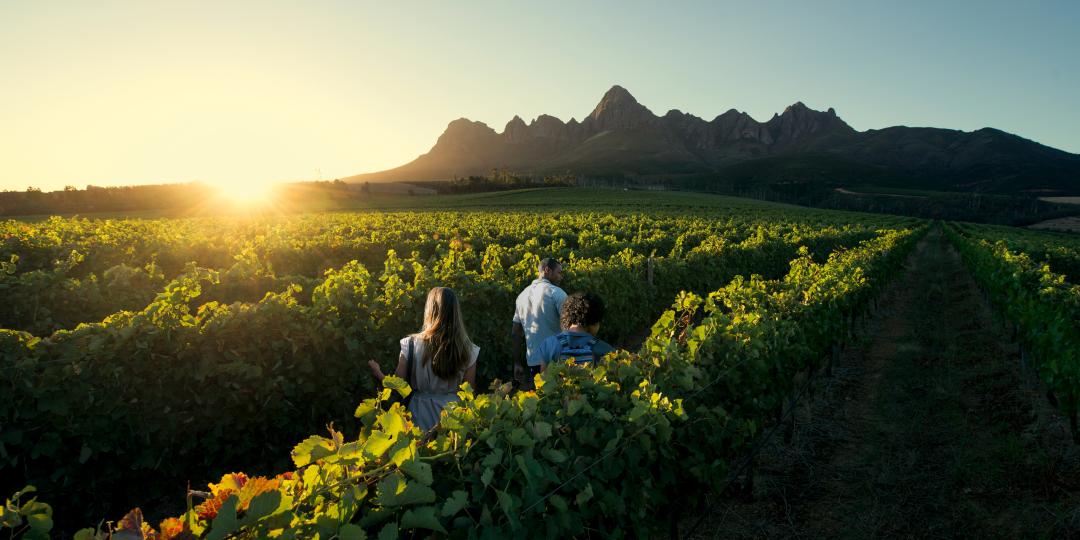South Africa’s lockdown restrictions on travel and the ban on alcohol sales have affected the wine industry and its tourism offerings, leading to a potential revenue loss of hundreds of millions of rands for the sector.
A recent report, released by South African wine industry association VinPro, showed that wine tourism directly contributed R2.4bn (€116m) to the country’s GDP. Wine tourism includes activities such as wine tasting, farm restaurants, conferencing and events, wine tours, accommodation and wedding facilities.
The report also found that smaller wineries were the most reliant on tourism, with over 40% of their overall turnover coming from tourism activities. The lockdown has impacted this source of income for wine cellars, with potential long-term effects not only on wine production but jobs and sustainability of business, according to wineland authorities.
Wineland regions (such as Paarl) in the Western Cape have noticed a change. “Our core attraction is definitely wine and experiences around it, and there’s definitely been a damper on those,” said CEO of the Drakenstein Local Tourism Association, Annelize Stroebel.
“We are fortunate to have large outdoor spaces that are popular at the moment,” she explained adding that being relatively close to Cape Town meant day visitors were coming to the destination for hiking and outdoor activities at the moment while wine experiences were not allowed under the current lockdown level 3.
Stroebel said while intra-provincial travel was helping restaurants and wine farms, it was too soon to tell if it would be sustainable enough to keep them in business. In the meantime, she added that she was aware of a few accommodations (that usually relied on wine tourism) that had permanently closed their doors while other self-catering units had converted into long-term lease properties in order to survive.
According to Stroebel without a change in restrictions, the impact on the wine and wine tourism industries would be long term. “People don’t just come for a wine tasting, they come for a whole experience with food and activities – and they can’t currently do that.”
She said that while opening inter-provincial travel might provide further relief, Paarl was generally more popular with international visitors.
World-famous wine-farm, Spier, has adapted its conferencing offerings to include a virtual conference option, meaning attendees across the country can enjoy the experiences of the farm despite not being there physically.
The lockdown isn’t the only difficulty faced by the wine industry. “The wine industry is cyclical and the wheel is turning; in some areas just faster than others,” said VinPro’s Agricultural Economist Pierre-André Rabie. He said the Little Karoo, Swartland and Olifants River regions had been hit hard by the Western Cape’s drought from 2015 to 2017.
“A financial drought always follows a physical drought, and many businesses would need good rainfall, decent yields and time to recover,” said Rabie.























